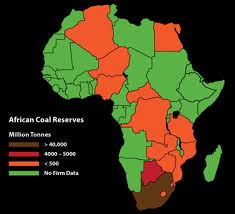Africa is undergoing a renewable energy boom, led by South Africa and Morocco, and renewables are offering the least-cost option to reduce a chronic power shortage and lack of access to electricity across the continent.
A report from the energy team at global law firm Baker & McKenzie, suggests solar PV has the most potential throughout Africa, while solar concentrated solar power (CSP), onshore wind and solar CPV are also tipped to make a significant contribution to the energy mix. Hydro and biomass are viewed as the most obvious complements to solar PV in Sub-Saharan Africa.
The report found that renewables can play a major role in the electrification of Africa because they can compete with conventional energy sources, particularly away from the limited transmission networks or developed fuel transportation hubs, but they are also cheaper than new coal-fired generators.
Much electricity generation in Africa relies on diesel fuel. With limited refining capacity on the continent, and few pipeline networks, the cost of diesel-powered electricity generation is high.
Removing fuel costs from the equation gives renewable energy a comparative cost advantage.
South Africa intends to bring 6.9 gigawatts (GW) of renewables capacity online by 2020 and has already awarded 2.4 GW of contracts through the first two windows of its procurement programme. The first phase of 1.4 GW comprises $5.4 billion of contracts.
Renewables were competitive with new-build coal in South Africa’s second procurement.
“Certain categories of renewable energy have become the de facto least cost generation option when compared to conventional new build alternatives,” explained Christopher Clarke, Founding Partner and Director of Inspired Evolution Investment Management.
“The average price for wind in the last bid was 89 Rand cents per KWh (kilowatt-hour), which is cheaper than the equivalent cost of cleaner coal new build in South Africa”.
Morocco has shortlisted six consortia to develop 850MW of wind capacity in five projects. This is the second phase of its wind program, which is targeting 2GW of installed capacity by 2020.
Morocco also has ambitious solar plans, including the 500MW Ouarzazate concentrated solar power (CSP) project, of which Phase 1 is under construction and Phase 2 under procurement. When completed this will be the largest CSP plant in the world.
A number of other North African countries, including Tunisia and Algeria, have announced ambitious targets for developing their renewable energy resources and have begun to put in place enabling legislation, according to the report.
Egypt has a target to install 7,200MW of wind power (representing 12 per cent of its 20 per cent renewable target) by 2020. It had projects with total installed capacity of about 550MW in 2010, which is the largest installed capacity in Africa.
In East Africa, Kenya and Uganda have established a renewable energy feed-in tariff while there is significant interest in exploiting the geothermal resources of the Rift Valley region in East Africa.
A number of African countries, including Zambia, the Democratic Republic of Congo, Uganda and Mozambique have also built large-scale hydro projects.
The report says debt financing for African renewables is the key. Investors need strong relationships with local banks and international development finance institutions (DFIs) to access affordable capital. Over 90 per cent of respondents felt such institutions will continue to play a vital role in financing projects for the next three years at least.
South African banks have so far financed most of the country’s programme to bring 6.9GW of renewables capacity online by 2020. Participation from international banks in African renewables has been limited to date, but 78 per cent of respondents believe non-African banks will become more active in the next two years.
Asia may be one source of additional investment, having invested over $6 billion in non-Asian renewable energy assets in 2012, with Africa an increasingly important target destination.
Political risk remains the big question mark, with 68 per cent of respondents putting it top of the list of concerns, higher than regulatory risk (42%), exchange rate risk (37%), compliance risk (28%) and technology risk (18%).
“It is an exciting time for renewables in Africa,” said Scott Brodsky, of Baker & McKenzie Johannesburg. “Renewable energy programs such as South Africa’s will bring much-needed power to keep the lights on and drive growth in an energy intensive economy that needs power for key industries such as mining, smelting and pulp and paper.”










